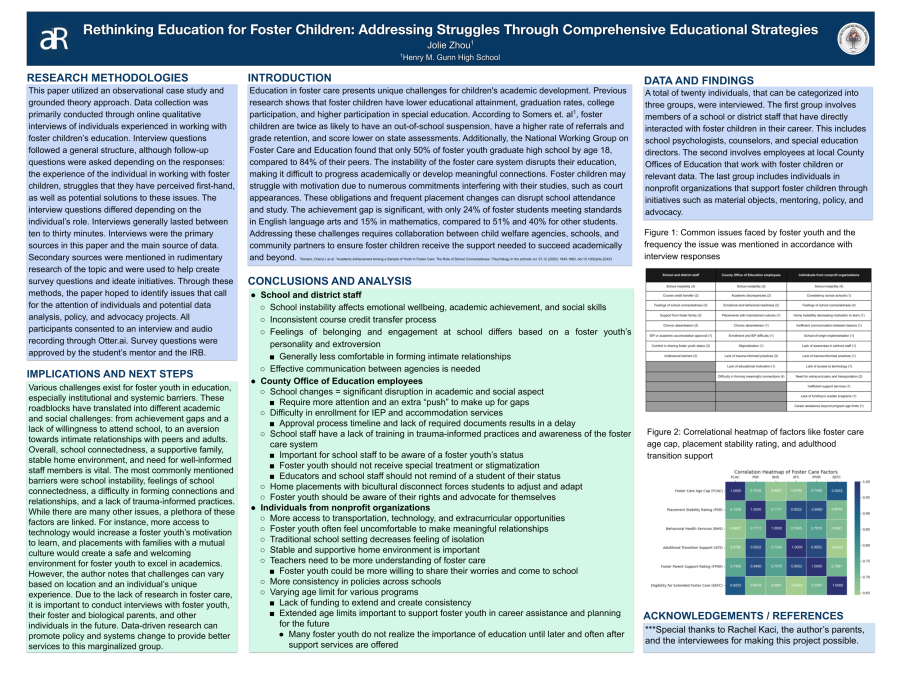Summary
Education in foster care presents unique challenges for children's academic development. According to the National Working Group on Foster Care and Education, only 50% of foster youth graduate high school by age 18, compared to 84% of their peers. The instability inherent in the foster care system often disrupts children's education, making it difficult to maintain academic progress or develop a strong educational identity. Foster children may struggle with motivation due to numerous commitments interfering with their studies, such as court appearances, therapy sessions, and family visitations. These obligations, along with frequent placement changes, can disrupt school attendance and study routines. Additionally, foster youth often face enrollment and credit transfer issues, leading to academic setbacks and frustration. The achievement gap is significant, with only 24% of foster students meeting standards in English language arts and 15% in mathematics, compared to 51% and 40% respectively for other students. Online or homeschool formats could provide beneficial alternatives, offering flexibility while maintaining educational consistency. Addressing these challenges requires collaboration between child welfare agencies, schools, and community partners to ensure foster children receive the support needed to succeed academically and beyond.

